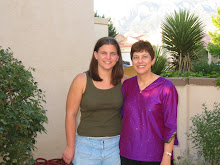January 30, 2009

Getting connected builds confidence given our expert teachers reassurance and clarification. A way to organize my networks, passwords, and usernames is needed for easy access. As I wondered how I to assist my students to do all of these, I was heartened to hear that the teacher can act as the administrator which can simplify student access. I hope I will learn to be an effective network administrator for them.
The possibilities that technology has for my students are infinite. Connectivity and access to the network as well as computer availability have been problems that inhibited my ability to use technology to a greater extent. With the expanded internet system (as I understand it) and web-based sharing, these problems should be solved. My students are making digital stories that they will upload onto u-tube. I realize that I need to make my own story and download it to utube in order to be able to guide the students through this process. As Clarence explained, teachers need to model effective networking behaviors - process and products. Then I need to give effective feedback on-line to each of the students again providing a model for them.
A paradigm shift is in order as I see that personal networking increases socialization and collaboration. The fear that a machine will replace human contact can be allayed as technology networks become an effective tool to foster human connections. An on-line community provides an environment where cross-cultural communiction is valued as members from various parts of the globe come together for a common purpose. The fact that English is a valuable language currency provides strong motivation for students to improve their English language skills and provides a myriad of authentic opportunities to use these skills as my ESL students engage in a cross-cultural on-line communtiy.
Though somewhat hesitant to post ideas publically, I am reassured that successes and failures are valued by learning communities. The courage to put ideas out on line allows for conversations that can enhance focus, clarity, and elaboration. It is constructivist learning at its best - to engage in a community of learners who have expertise and experiences to share from around the world for free. I am convinced that "sharism" is the way forward.
I embrace this new approach to learning with some trepidation as many of my students are so much more knowledgable and comfortable with these tools. However, the support of the technology experts, other colleagues and my wonderful students makes the time right for making this change. It feels as if the juicy, ripe fruit weighs heavily on the tree just out of reach. I am ready to expand my grasp with helping hands in order to taste the sweet nectar of success.


"Sharism" I have never hear that before and yet as soon as I read it I knew I need to blog about it. I think you are spot on. Sharism is the future.....another blog post to start. :)
ReplyDeleteI love the term "sharism" too Barbara! I think the more willing you are to participate in this learning environment the more valuable you will find it for your students. Successes and failures are all welcome here - we learn from our mistakes and we help others avoid them when we can. Welcome!
ReplyDelete